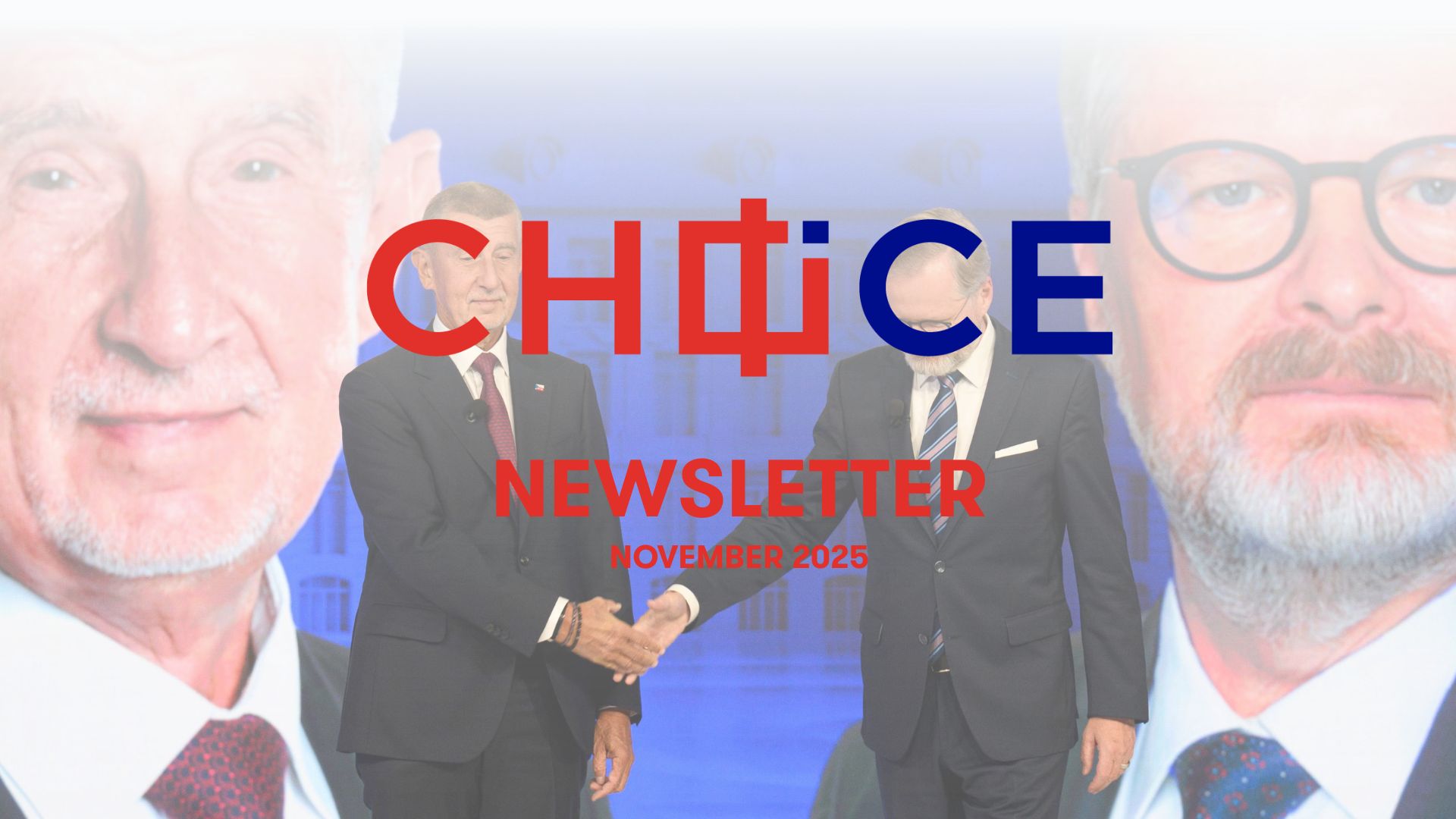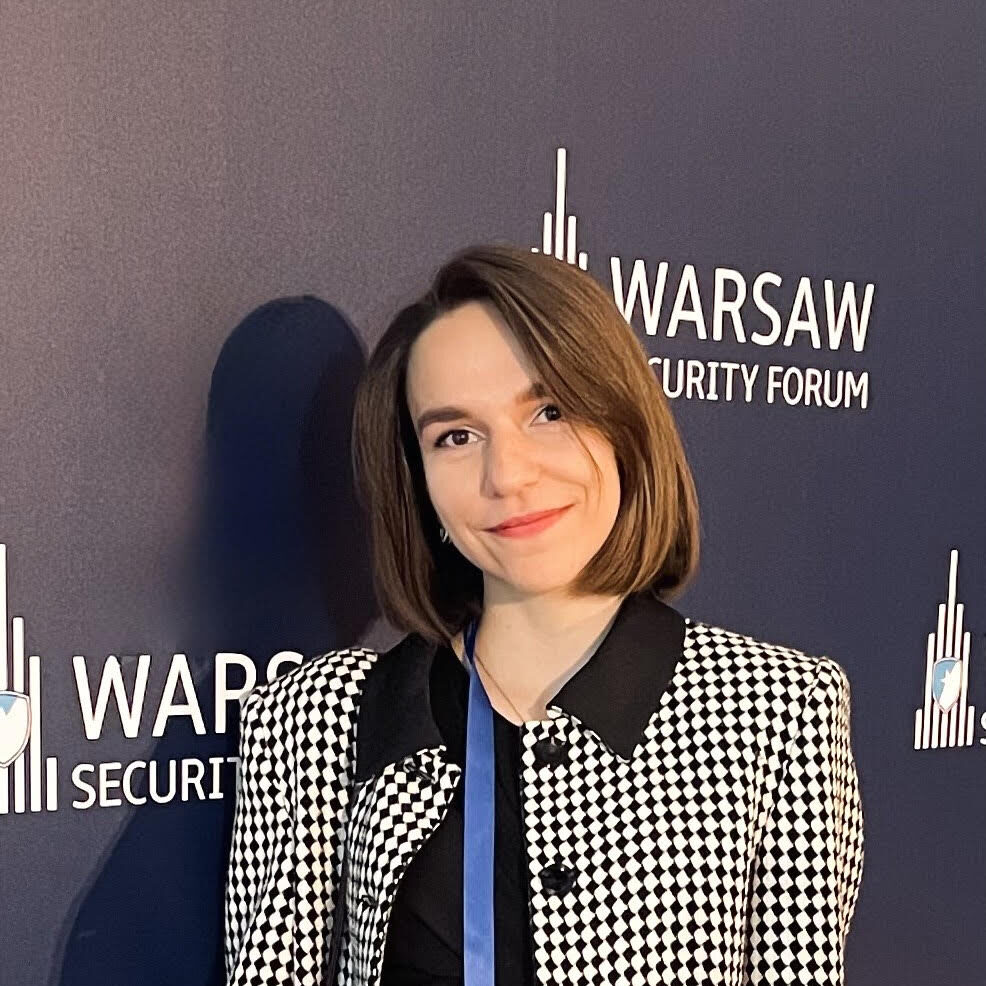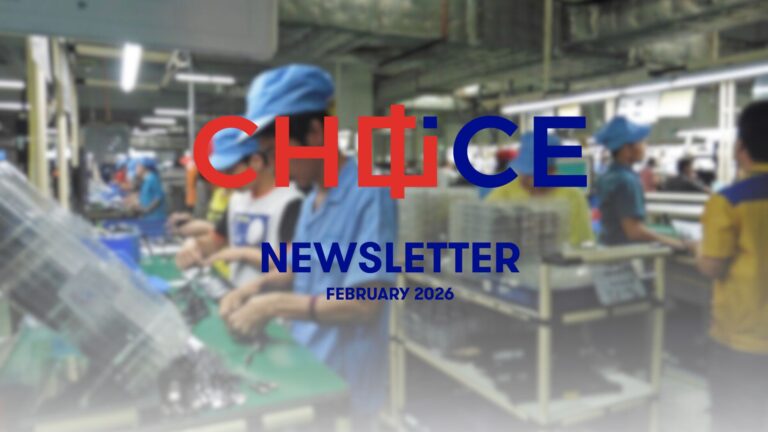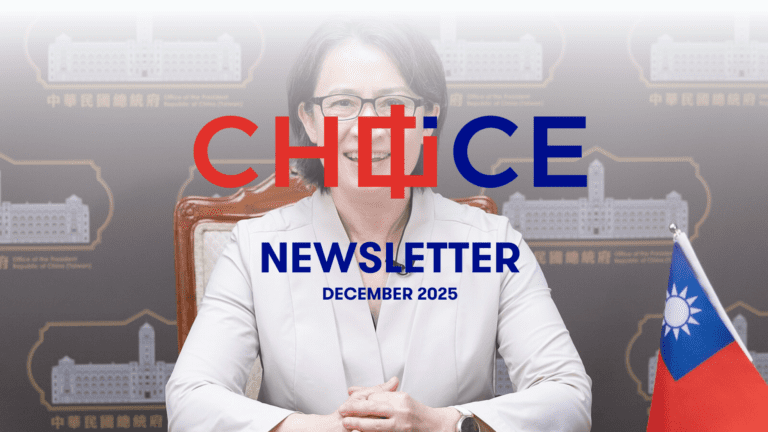CHOICE Newsletter: China in CEE Elections

Dear reader,
Europe’s China debate is moving from conference rooms to campaign trails. In Hungary, with elections less than a year away, foreign policy usually sits in the back seat – but the Orbán government is getting more busy promoting Beijing’s “success story” at home. This month’s CHOICE Quick Takes examines how China figures in Hungary’s pre-election messaging, what’s substance versus spin, and why it matters for the CEE region and for Brussels.
You’ll notice the format has changed. We’ve redesigned the newsletter so that, instead of a single long CHOICE Take, you’ll find several shorter, timely dispatches from analysts across the region – quicker to read and sharper to act on. To anchor the EU angle, our new CHOICE in Brussels collumn brings insights from colleagues in the Brussels office, unpacking what’s moving inside the institutions. And to go deeper, the rebranded China Observers podcast’s first episode is linked below.
Meanwhile, the European Parliament is taking up the China issue too – yesterday, I had the honor to testify at the Defense of Democracy Shield Committee’s hearing on China’s influence in Europe and globally. And one last note from our team: we’re hiring. Applications are open until November 9 for a Senior China Analyst (Deputy Team Lead) – a role for seasoned experts eager to shape the CHOICE network, steer AMO’s China team, and help drive our strategy.
Thanks for reading – and for being part of this community that chooses nuance over noise.
By Ivana Karásková, CHOICE Founder and Team Lead (based in Prague)
CHOICE Quick Takes
Peripheral but Present: China in Czech Election Campaign

by Filip Čápek, Master’s Student at KU Leuven (based in Belgium)
by Filip Čápek, Master’s student at KU Leuven (based in Belgium)
China did not feature prominently on the agenda of the 2025 parliamentary election campaigns, which revolved around debates on the Russian threat, the war in Ukraine, the economy, and migration. The Czech government’s strong condemnation of continuous Chinese cyberattacks on the Czech Foreign Ministry in May effectively discouraged any pro-China stances during the campaign. Prior to this, however, the opposition movement Stačilo! maintained engagement with Beijing. Party chairwoman Kateřina Konečná visited China in February, calling China an “economic tiger” and expressing hope for a renewal of dialogue once a new Czech government is formed. She criticized Foreign Minister Jan Lipavský for cultivating ties with Taiwan when other Central European countries are welcoming Chinese investments. Her fellow party MEP Ondřej Dostál attended a conference in China that has reportedly been linked to CCP intelligence activities, which he described as a routine visit. A newcomer to the elections, the Motoristé party, used China mainly to oppose EU green policies, arguing that the green transition benefits China economically and labeling pro-green transition politicians as “China’s agents.” Therefore, although China was not a campaign priority, it remained an implicit undercurrent in debates on foreign relations.
Could Hungary’s 2026 Election Shift Its China Policy?

by Réka Koleszár, PhD student at National Chengchi University (based in Taiwan)
With less than a year until Hungarians head to the polls, the national conversation has shifted firmly into campaign mode. Although foreign affairs rarely capture the Hungarian electorate’s attention, the Orbán government has been enthusiastically selling China’s success story to the domestic audience while betting on Beijing’s victory in the US-China competition. Even as controversies linger regarding the environmental costs and real national benefits, government officials continue to champion Chinese investment as a source of economic growth and job creation. On the international stage, Orbán is walking a fine line: his admiration for Donald Trump runs deep, yet Hungary continues to move closer to Beijing. Given the high stakes, this contrast could well find its way into the campaign spotlight. Moreover, while Péter Magyar – Orbán’s main challenger – has yet to outline a detailed foreign policy, he has signaled support for maintaining a fair but more critical relationship with Beijing. A win for him could put Hungary’s close ties with China under fresh scrutiny.
Beijing’s Vision Resonated in Moldova’s Elections

by Konrad Szatters, CHOICE Analyst (based in Brussels)
Throughout the last election periods, Chinese influence in Moldova remained rather modest compared to the Russian disinformation campaigns. Nonetheless, in the bigger picture, Beijing’s narratives of multipolarity, peaceful coexistence, and pragmatic cooperation may offer an alternative vision resonating with Moldovan voters fatigued by the ongoing political and societal polarization. In Moldovan media, Chinese officials have consistently portrayed China as a non-interfering, development-oriented partner, which “provides unwavering support on issues concerning national sovereignty and territorial integrity.” Chinese Ambassador, Yan Wenbin, has even wished Moldova peace and prosperity during its integration with the EU. While these messages may have limited reach compared to Moscow’s well-established disinformation and propaganda networks, they frame Beijing as a balanced and pragmatic actor – an alleged beacon of stability amid great power competition. The case of Moldova shows that China’s influence in the EU’s Eastern Neighborhood remains quiet but strategically consistent. Beijing’s narratives and actions in the region are less about immediate political returns and more about patiently building its long-term presence.
CHOICE in Brussels
Silence Surrounding China-EU Parliamentary Meeting
The 42nd meeting between the European Parliament’s Delegation for Relations and the People’s Republic of China and representatives of the National People’s Congress took place on October 16, 2025.But what noise made its way out of the closed-door meeting?
Reactions to the meeting from the European side filled expert analyses and news articles. Engin Eroglu, the Chair of the Parliament’s China delegation, told the South China Morning Post: “The Chinese side questioned NATO’s right to exist. I haven’t heard that publicly before.” The European delegation’s statement underlined “deep differences, and mutual criticism” in the exchange.
But what was the Chinese reaction? I wondered, while directing myself to the retro-looking website of the Chinese Mission to the EU, only to find no trace of the meeting’s existence. The same was true for the Mission’s social media: on October 16, its X account posted about the Netherlands seizing control of the semiconductor manufacturer Nexperia. While Chinese Ambassador to the EU Cai Run attended the meeting (he can be seen standing next to Fu Ziying who led the Chinese delegation, in the official picture of the meeting), his official X account posted a picture of a Chinese autumn landscape instead. This contrasts with the standard communication about Ambassador Cai’s October visit to the College of Europe in Bruges.
The odd silence extends further: there was nothing about the meeting on the website of China’s Ministry of Foreign Affairs or on the state-owned media outlet Xinhua, which instead published about the 2025 China-Europe Think Tanks Dialogue held in Beijing. The only mention of the event can be found on the website of the National People’s Congress, in the form of an omissive summary of the discussions on “China-EU relations, regional security, climate change and sustainable development as well as trade investment and the future of bilateral relations.”
So why this silence? I asked the Chinese Mission. While it did not answer the question directly, it insisted that the “successful and productive” meeting had “candid, in-depth and constructive discussions,” thus leaving me to ponder. Perhaps it did not want to draw attention to the European Parliament’s declarations on sensitive topics such as human rights concerns or the stability of the Taiwan Strait. Or perhaps, if Chinese news preferred to highlight other encounters, such as Minister Wang Yi’s meeting with Emmanuel Bonne in Hangzhou, it is simply because it does not perceive the European Parliament as a relevant interlocutor. While European observers are enthusiastic about the new channel of communication opened by parliamentary diplomacy, it seems that the Chinese side has not found it newsworthy.
By Emma Belmonte, CHOICE Analyst (based in Brussels)
WiCH Highlights
🇪🇸 Alicia García-Herrero, Co-Chair for Spain, wrote a paper on European companies rethinking their presence in China. Read it here!
🇫🇮 Sari Arho Havrén, our Co-Chair for Finland, shared her takes on Donald Trump seeking trade agreement with Xi Jinping with Radio Free Europe and on China’s ‘mega embassy’ in London with Observing China. Check it out here and here!
🇭🇺 Ágnes Szunomár, our Co-Chair for Hungary, co-authored a paper on The European Union’s investment screening framework and China – a complicated picture. Read it here!
CHOICE News
 Ivana Karásková testified at the the European Parliament’s Defense of Democracy Shield Committee public hearing on China’s influence in the EU and globally (watch it here), spoke to iRozhlas (check it out here) about our new paper on how parliamentary assistants can shape the European Parliament’s China agenda (read it here).
Ivana Karásková testified at the the European Parliament’s Defense of Democracy Shield Committee public hearing on China’s influence in the EU and globally (watch it here), spoke to iRozhlas (check it out here) about our new paper on how parliamentary assistants can shape the European Parliament’s China agenda (read it here).
 Emma Belmonte wrote an article for ChinaFile detailing how Chinese citizens travel abroad for surrogacy due to a lack of legal local options (read it here).
Emma Belmonte wrote an article for ChinaFile detailing how Chinese citizens travel abroad for surrogacy due to a lack of legal local options (read it here).
 Paulína Ovečková spoke to Hospodářské noviny about China’s new rare earth export controls and how Europe should respond (read it here).
Paulína Ovečková spoke to Hospodářské noviny about China’s new rare earth export controls and how Europe should respond (read it here).
 We’re on Bluesky, LinkedIn, X, and Instagram! Stay updated with our latest articles, insights, and news by following our accounts – don’t miss out on valuable content and updates.
We’re on Bluesky, LinkedIn, X, and Instagram! Stay updated with our latest articles, insights, and news by following our accounts – don’t miss out on valuable content and updates.
This is the web version of our newsletter. If you’d like to receive the CHOICE newsletter in advance, straight to your inbox, sign up here:
Written by
CHOICE
CHOICE is a multinational consortium of experts providing informed analysis on the rising influence of the People’s Republic of China within the countries of Central and Eastern Europe (CEE).


